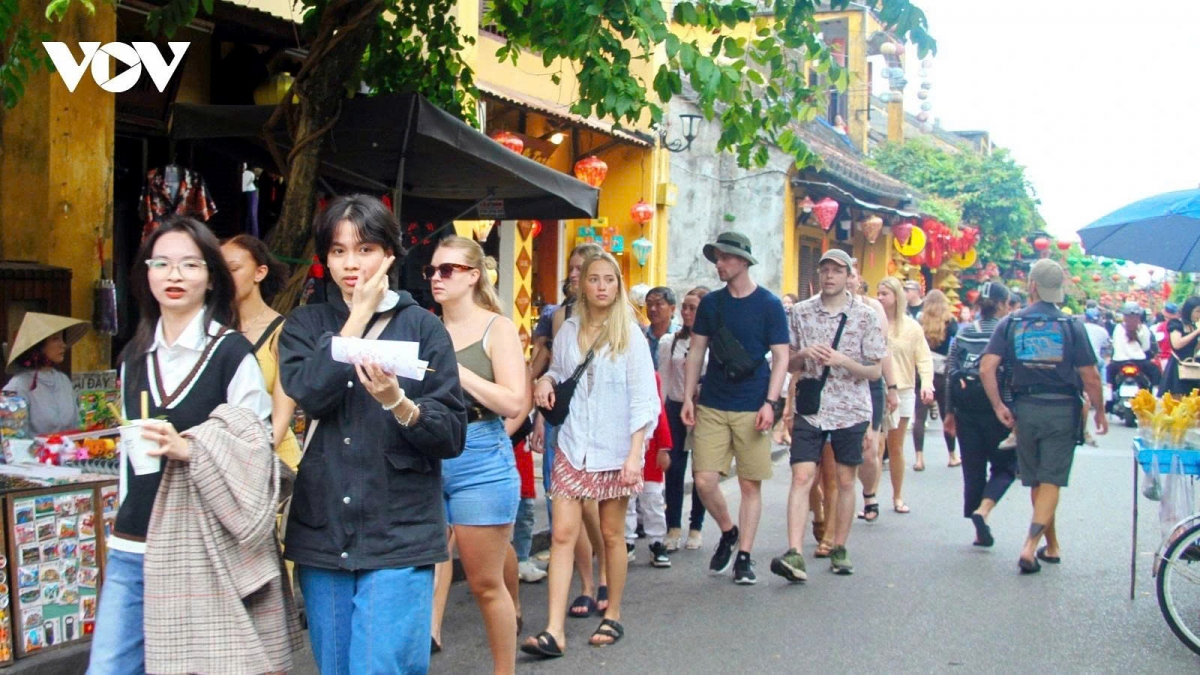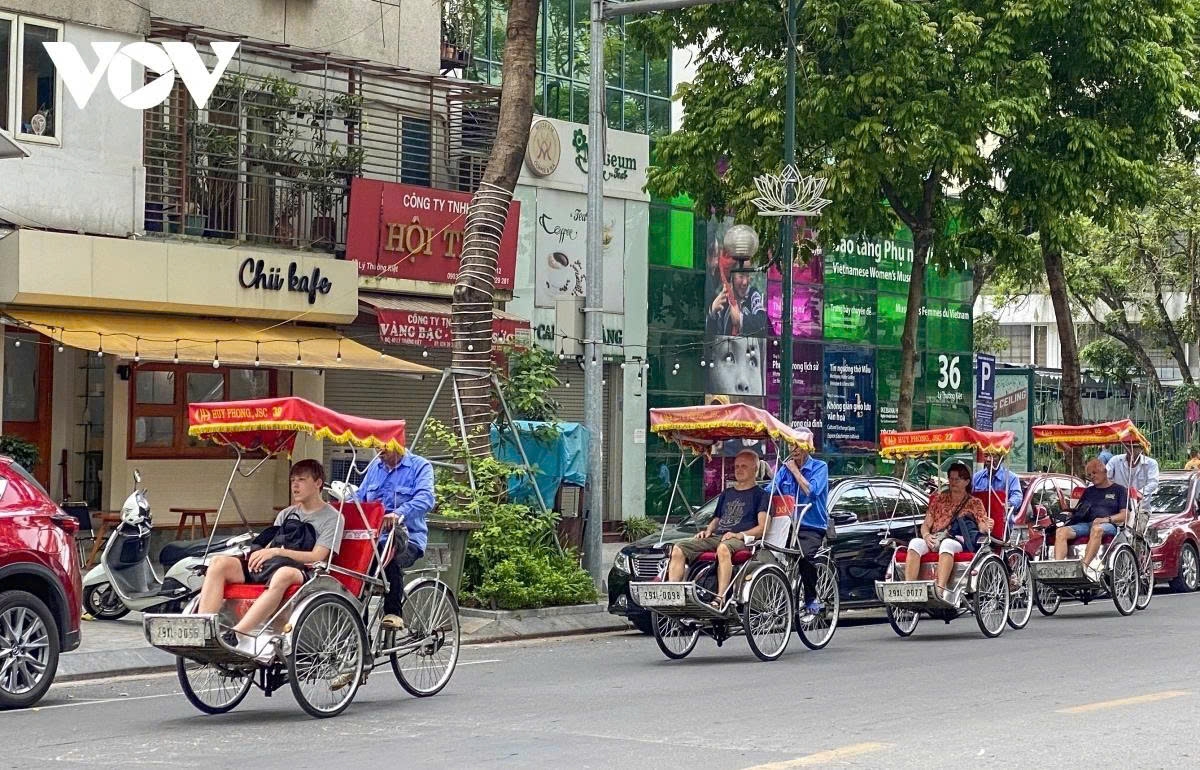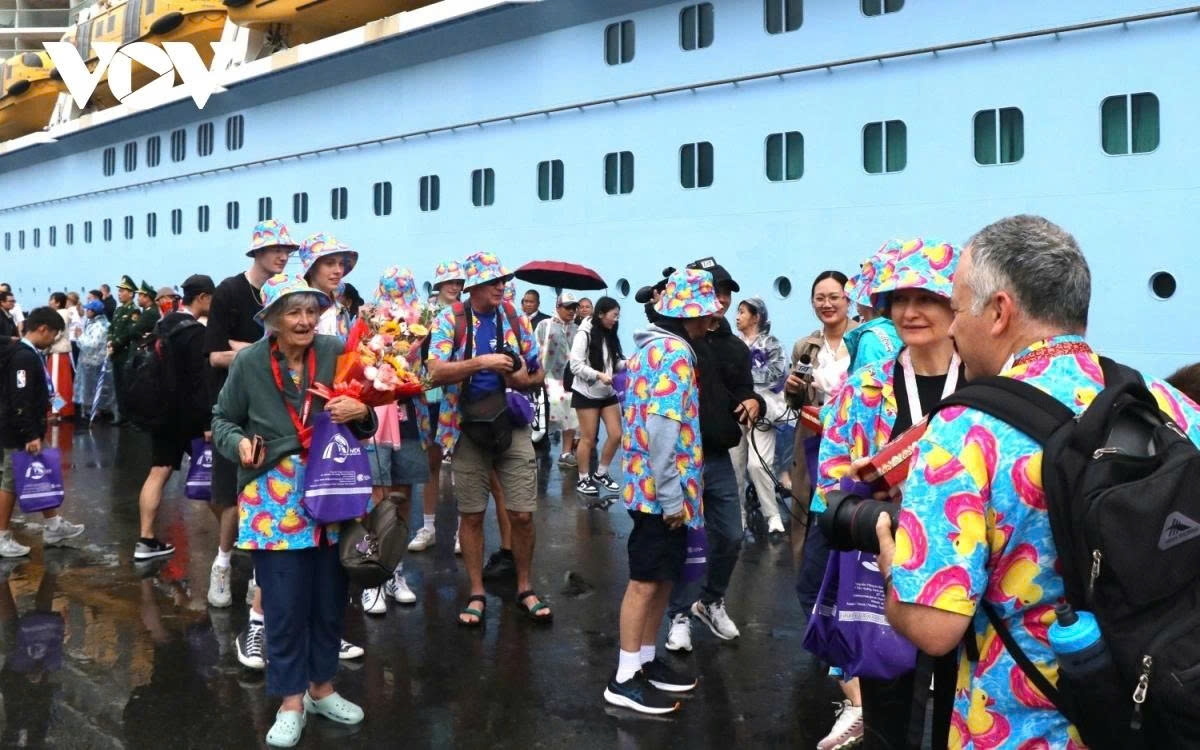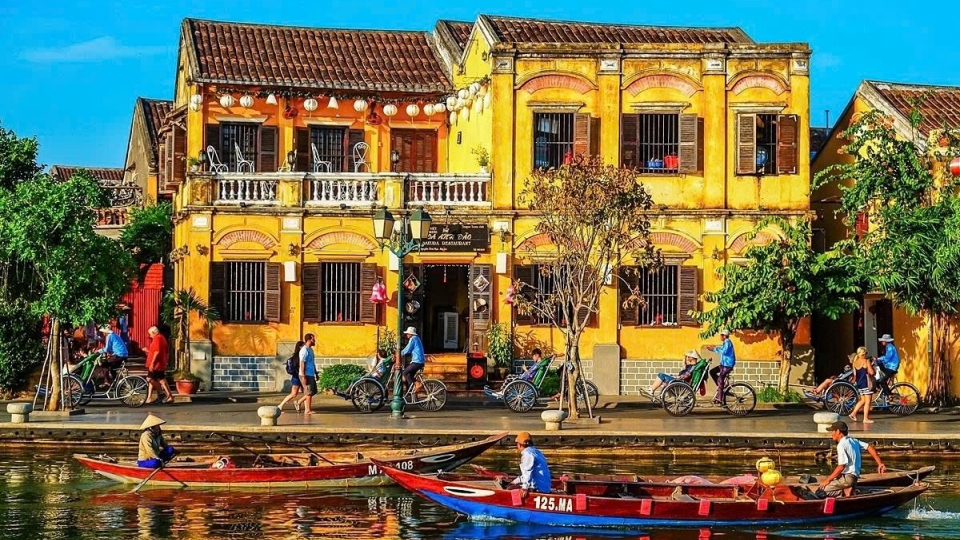Vietnam seeks to attract high-end international tourists
VOV.VN - While Vietnam’s tourism industry is witnessing a strong recovery with growing numbers of international arrivals, the share of luxury travelers with high spending capacity and sophisticated expectations remains modest.

According to the Vietnam National Authority of Tourism, international searches for Vietnam travel in early 2025 increased by 10–25%, ranking the country 7th globally and the only Southeast Asian destination in the top 10. This is a positive sign, especially as Vietnam continues to welcome more affluent visitors from Europe, the United States, Japan, the Republic of Korea, and recently, the Middle East.
From high-profile Indian billionaire weddings in Phu Quoc to tech mogul Bill Gates’ visit to Da Nang, and American millionaires exploring Ha Giang and Ha Long Bay, Vietnam is increasingly catching the eye of wealthy travellers worldwide.
Experts agree that Vietnam possesses all the elements needed to become a premier destination for luxury tourism. These factors are breathtaking natural landscapes, rich cultural identity, exquisite cuisine, and an expanding high-end hospitality infrastructure.
Dr. Pham Hai Quynh, director of the Asia Tourism Development Institute, says Vietnam offers diverse experiences, from pristine beaches and forested mountains to UNESCO-recognised heritage sites like Hoi An, Hue, and the Thang Long Imperial Citadel.
The country also boasts a growing number of five-star resorts, luxury cruises, wellness spas, and bespoke services in destinations such as Da Nang, Nha Trang, Phu Quoc, Sa Pa, and Da Lat, defining a new standard for luxury travel in Vietnam.

Despite its potential, Vietnam still faces significant challenges in attracting high-end international tourists. A key issue is the lack of highly customised, premium travel products, something the luxury market demands. Infrastructure at many destinations, including international airports, marinas, and inter-regional transport systems, remains underdeveloped.
Service quality and staffing also fall short, especially in terms of language skills and international hospitality standards. Marketing efforts are still focused on Vietnam’s affordable and friendly appeal rather than positioning the country as an exclusive, high-value destination.
According to Le Cong Nang, chairman of WonderTour, Vietnam may have five-star resorts, but services are still fragmented.
“What we lack is a cohesive ecosystem and a strategic focus specifically tailored to the high-end market,” says Nang.
To win over the luxury segment, Dr. Hoang Thi Diep, former deputy director of the Vietnam National Authority of Tourism, says the local tourism industry should gradually shift from a “sell what we have” mindset to a “deliver what the customer needs” approach. In her opinion, luxury travelers seek personalisation, privacy, and cultural authenticity, not just opulence.
“What defines luxury is not just glamour, but refined service, cultural originality, and one-of-a-kind experiences tailored to each individual,” she says.
Tourism businesses are currently beginning to offer specialised products such as golf tourism, MICE (Meetings, Incentives, Conferences, and Exhibitions), premium cruises, wildlife adventures, scuba diving, and remote, exclusive retreats designed to match the tastes and expectations of affluent travelers.
According to Associate Professor Dr. Pham Trung Luong, former deputy director of the Institute for Tourism Research, the Vietnamese government’s Tourism Development Strategy to 2030 already includes a clear focus on attracting high-end international travelers. Several provinces are now actively designing premium tourism products in line with this goal.
However, success depends not only on having a good strategy or natural resources, but on how well local governments implement these plans. Quality human resources and consistent policy support for investors are essential to developing competitive high-end offerings.
Vietnam must also redefine its destination image, from just a “beautiful and friendly” place to one that offers sophisticated, personalised, and memorable experiences.

With its spectacular landscapes, deep-rooted cultural heritage, and a growing emphasis on quality and innovation, Vietnam is poised to become a preferred destination for elite global travelers.
To achieve this, experts agree that the tourism industry must invest in premium infrastructure, improve human resource training, develop unique and high-quality travel products, and promote its image in global luxury markets.
“Vietnam’s success in the luxury travel market depends on our ability to understand our guests and exceed their expectations at every touchpoint. The future of tourism lies in personalisation, sustainability, and storytelling where every experience becomes a lasting memory,” stresses Dr Diep.





